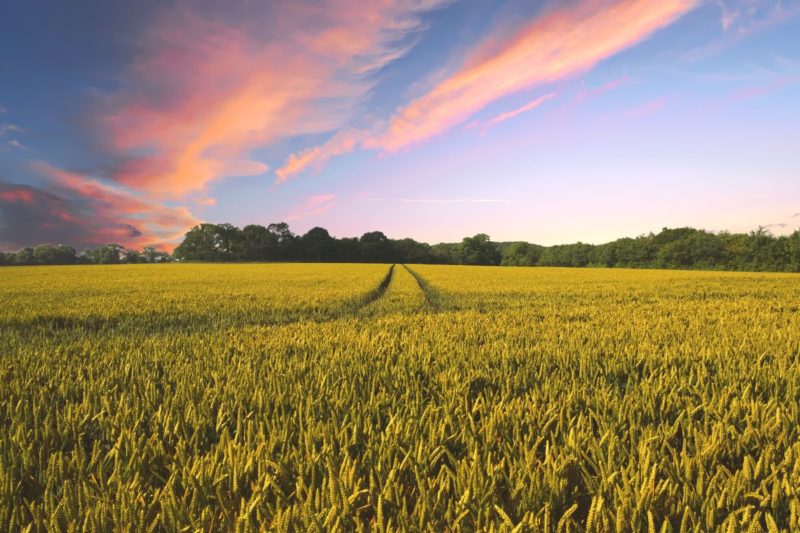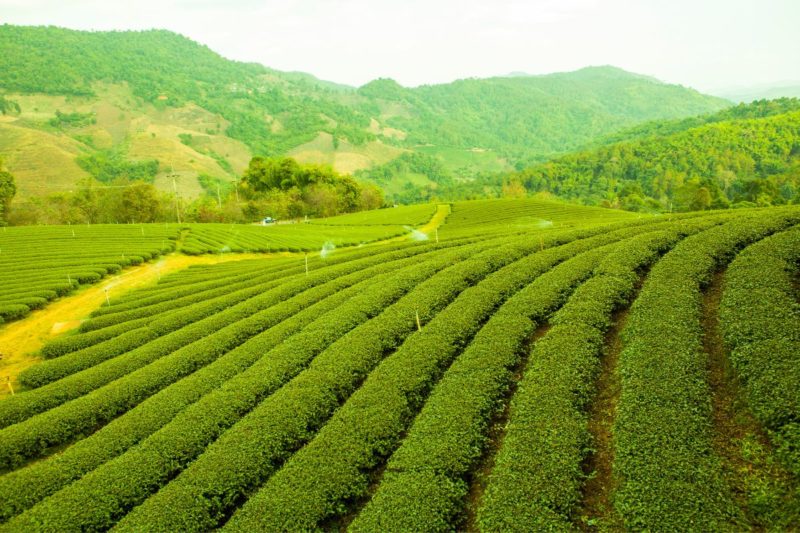Farmland has always been considered a safe investment. But now, with interest rates at historic lows, some experts say it might be time to consider buying land.
You may be asking, however, how do I invest in farmland? And is this still worth it?
Land prices have risen dramatically over the last decade, thanks to increasing demand from urban dwellers looking to move out into the country.
But the price of farmland has also increased significantly, meaning that investors who want to get involved in farming face a tough decision.
We took a closer look at the practicalities of investing in farmland, and the pros and cons that this could offer your wider investment portfolio, as well as considering how to start investing in farmland – is it too late for you to join the trend?
What's Ahead...
Why Invest In Farmland?
Farmland is one of the oldest forms of real estate investment and has the potential to offer you high returns.
This is an asset class that offers both capital growth and income through its production of crops or livestock.
Some of the main advantages of investing in farmland include:
- Land Ownership
One of the main advantages of investing in farmland is the security of land ownership.
As opposed to renting, investing in farmland means that you own the property, and can do what you like with it.
You are not tied to an agreement for any specific length of time — so there’s no pressure on selling up quickly, and you can simply sit back and wait for the market to swing in your favor.
- Rising Demand For Land
Another advantage of owning farmland is that this is an asset that is increasing in demand, as more people seek to escape the hustle and bustle of city life, and there is a lot of money moving into a relatively small industry – investing at the right time could see you get your hands on some of this profit.
- Capital Growth And Income
The final benefit of investing in farmland is that it provides you with the opportunity to generate both capital gains and income.
The value of farmland tends to rise when interest rates fall, which makes it a good choice for those seeking higher yields.
At the same time, the cost of producing food tends to increase when interest rates rise, making it a great option for those wanting to make a return on their investments.
The Risks Of Buying Farmland
There are risks associated with investing in farmland, however, and some of these include:
- Lack Of Liquidity
As mentioned above, there is a large amount of money flowing into farmland every year, but this isn’t necessarily available to buy immediately.
Investors need to be prepared for long waiting periods before they can access funds, and may find themselves having to pay more than expected if they don’t act fast enough.
- High Capital Requirements
Investing in farmland requires a significant initial outlay of cash. This can mean that you will need to put down between 10-20% of the purchase price upfront, depending on how much you plan to invest, and the size of the farmland that you are looking to buy.
If you are planning to use the land for agricultural purposes, then you will also need to factor in the cost of expensive machinery or new buildings.
- Limited Returns
While farmland does provide you with the chance to earn a decent return on your investment, the average rate of return over the last few years has been just 1%. So while it might sound appealing, remember that
How Do I Invest In Farmland?

Now that we have taken a look at the pros and cons of investing in farmland, let’s take a closer look at how to start investing in farmland today.
Step 1: Decide What Type Of Investment You Want
Before you even begin thinking about buying farmland, you should decide exactly what type of investment you want to make.
Do you want to invest in farmland for its potential to produce income? Or would you rather focus on the capital growth opportunities offered by farmland?
If you are interested in generating income from your farmland, then you will need to think carefully about the types of crops that you grow.
For example, if you choose to grow wheat, you will need to ensure that you have a sufficient water supply so that you can irrigate your fields.
Similarly, if you are growing vegetables, you will need to consider where you intend to sell them, and whether you will need to transport them to market yourself.
If you are interested in capital growth, then you should focus on purchasing farmland that is located close to major cities.
Cities tend to attract lots of people who are looking to move away from the hustle and bustles of modern-day living, and this means that there will always be plenty of buyers for your property.
Step 2: Find Land That Fits Your Needs
Once you know what kind of investment you want to pursue, you will need to identify suitable properties. There are two main ways to do this, through a real estate agent or through an inline search engine.
After you have found a suitable property, you will need to make an offer on it. Remember that when you make an offer, you will typically need to pay a deposit equal to around 5-10% of the total value of the property.
Step 3: Choose Staff To Manage Your Investment
When you first start investing in farmland, you will need to hire someone to manage your property.
While this person will not actually own the land, they will be responsible for making sure that everything runs smoothly.
They will also be responsible for managing all aspects of the farm, including hiring staff, paying bills, and dealing with tenants.
Is It Too Late To Invest In Farmland?
So, is it now a good idea to invest in farmland?
The answer is both yes and no; while the prices of farmland are currently reasonable, many investors have already snapped up large amounts of land.
This has led to a shortage of available land, which means that it could be difficult to find a suitable piece of land that fits your requirements.
However, if you are lucky enough to find a suitable piece, then you should definitely take advantage of the opportunity; this is an investment that can provide you with a steady stream of cash flow over time through the goods and items that your farm produces, such as meat, milk, eggs, and even honey.
Other options include leasing your land to other farmers or selling off part of your land to build houses.
The bottom line is that if you are serious about becoming wealthy by investing in farmland, then you need to act quickly before others snap up all the available land – this is a good long-term investment that can help you achieve financial freedom, and offers plenty of benefits along the way.
Final Thoughts
Investing in farmland can be a great way to earn money, but it does come with its risks.
For example, if you buy a piece of land that is too small, then you may struggle to produce anything worthwhile.
On the other hand, if you purchase a larger plot of land, then you run the risk of having to spend more than you expected.
The trick is to research your investment thoroughly before committing, and ensure that you choose a piece of land that meets your specific needs.
If you follow these tips, then you should be able to reap the rewards of owning farmland without experiencing any major problems.
Frequently Asked Questions
Why Is Farmland A Good Investment?
Farmland is a great investment because it provides you with a steady income source that allows you to generate passive income from a single asset.
You do not need to work hard to maintain your farm, and you can simply sit back and watch your profits grow.
What Are Some Of The Risks Involved With Farming Land?
There are two main risks involved with farming land: weather and location – these will impact the crops you grow.
Is Now A Good Time To Buy Farmland?
If you want to make the most out of your investment, then you need to buy at the right time.
Right now, there are fewer people buying farmland than ever before, so you should consider purchasing some land when the market is still relatively low.
However, if you wait until later on, then you may miss out on the best deals.
Paul Martinez is the founder of BendingDestiny.com. He is an expert in the areas of finance, real estate, and eCommerce.
Join him on BendingDestiny.com to learn how to improve your financial life and excel in these areas. Before starting this blog, Paul built from scratch and managed two multi-million dollar companies. One in the real estate sector and one in the eCommerce sector.


